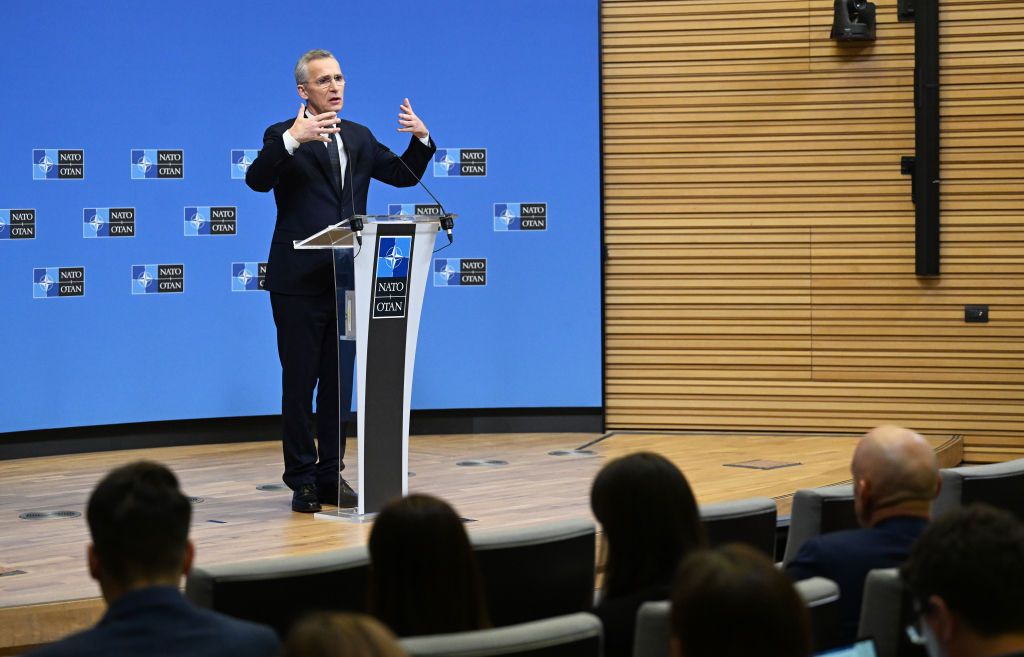NATO official: No major shifts expected in Ukraine-Russia war this year.
There will not likely be any major shifts in the war this year as both Ukraine and Russia struggle to assemble a striking force capable of making a major breakthrough, a high-ranking NATO official said on Feb.
14, according to a Kyiv Independent reporter. However, there appears to be an increase in offensive actions by Russia along the front as the frozen ground has enabled more cross-country movement, the official said in a briefing prior to the meeting of the NATO defense ministers in Brussels, Belgium. NATO defense ministers gather in the Belgian capital as concerns about the war's future development grow.
Assistance for Ukraine from the U.S., the key military donor, remains stalled by parts of the Republican Party while Russia ramps up pressure in several sectors of the front. "The most intense ground combat has taken place around Avdiivka in Donetsk Oblast, on the eastern bank of the Dnipro River in Kherson Oblast, where Ukrainian forces have established a bridgehead, and on the Kupiansk-Lyman axis in Luhansk Oblast," the NATO official said.
Stoltenberg: Concerns valid over level of NATO ally defense spending NATO's European allies and Canada have stepped up their defense spending to record levels, but criticism about the Alliance's members not spending enough is valid, NATO Secretary-General Jens Stoltenberg said on Feb.
14.

According to recent reports, the situation around Avdiivka grows ever more dire as Russia seeks to encircle the front-line town. Ukraine's elite Third Assault Brigade confirmed on Feb.
15 that it was "urgently" redeployed to the sector, adding that the situation in the area is "extremely critical." In spite of this, major offensives by Russian forces remain unlikely in the near future.
"Overall, it's clear that Russia continues to lack the munitions and the maneuver units required for successful major offensives, and Russian commanders are struggling to orchestrate complex joint effects, concentrate sufficient artillery and ammunition, and maintain morale," the official said. "Instead, they're ordering undermanned, inexperienced units to achieve unrealistic objectives due to political pressure." In turn, Ukraine also faces an increasingly difficult situation in ammunition supplies, not only artillery shells but also air defenses.
Russia is seeking to exploit this vulnerability by ramping up strikes against critical infrastructure and defense industrial base, the official said. Looking ahead, the official expects that Ukraine may intensify its military operations when the weather becomes more favorable during the spring. A major counteroffensive aiming to completely push out Russian forces from the Ukrainian territory is unlikely in 2024, the official noted.
Long-term planning must be considered as the war settles into a prolonged conflict.